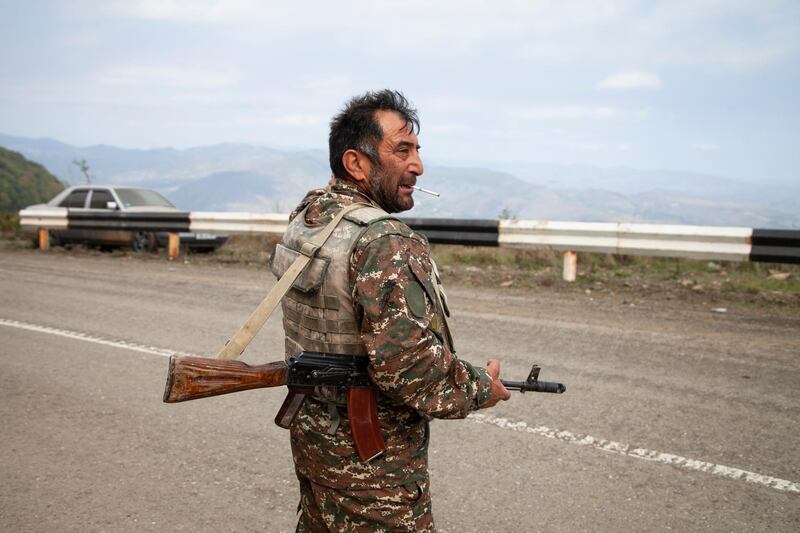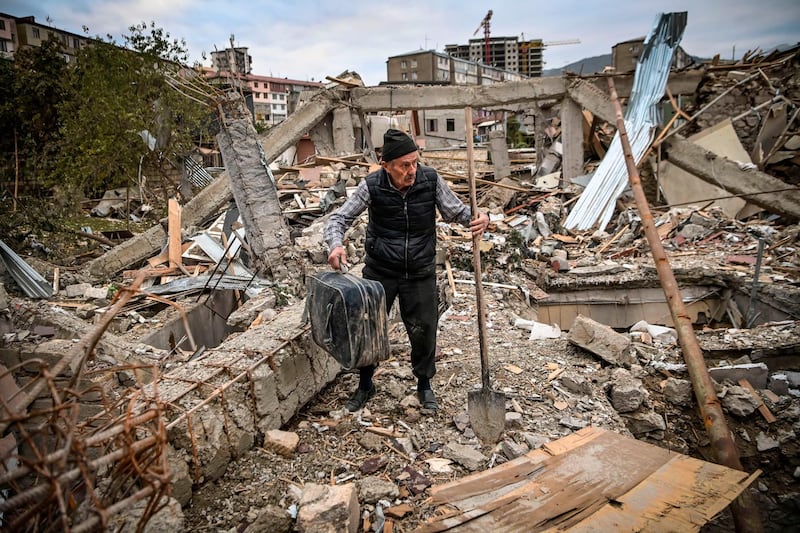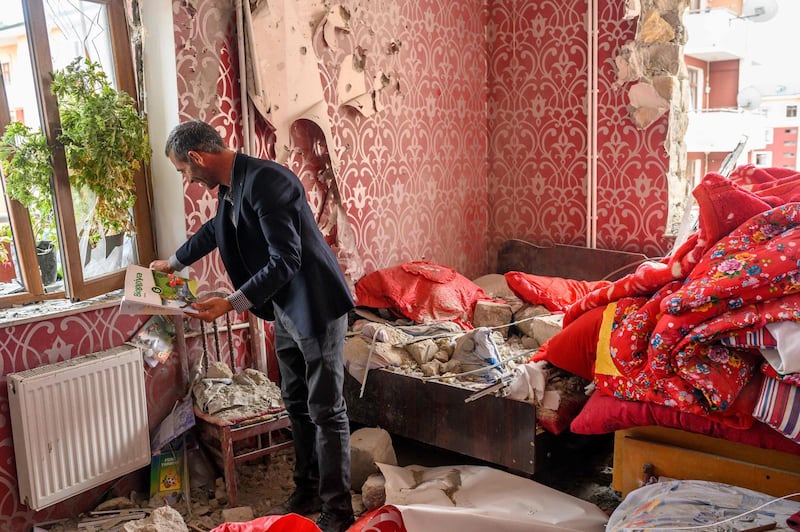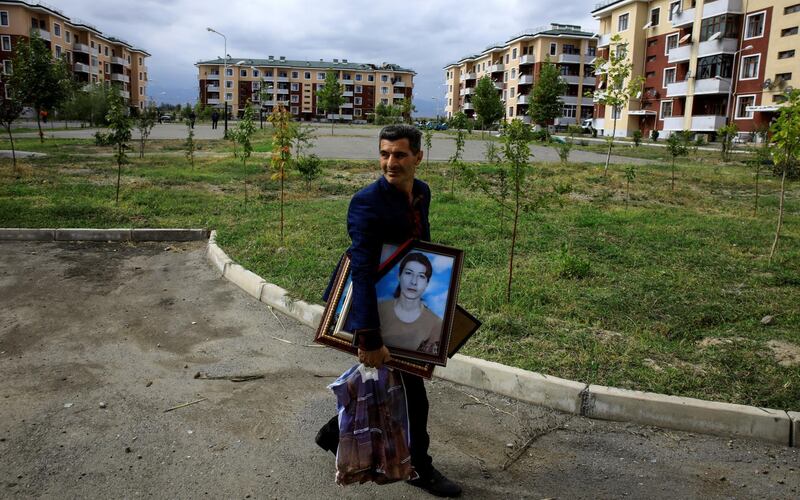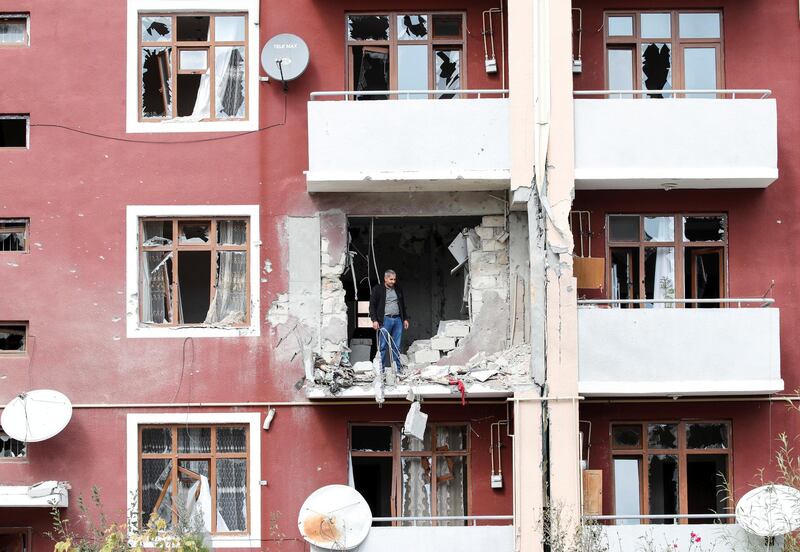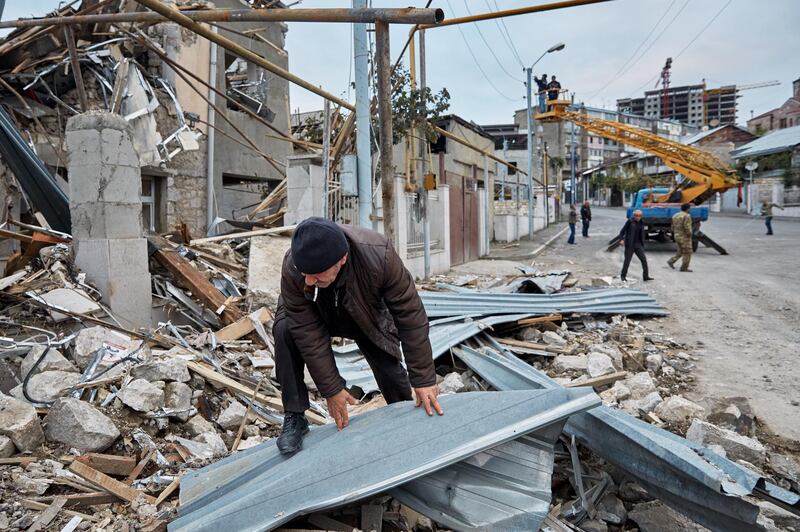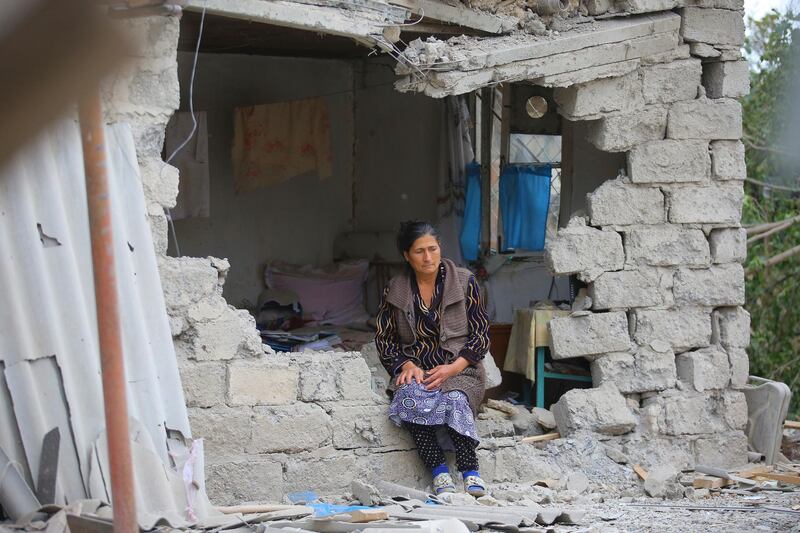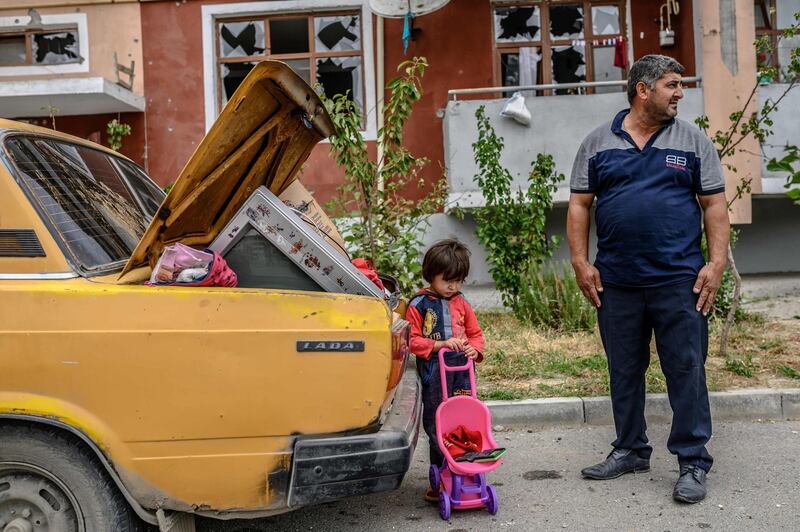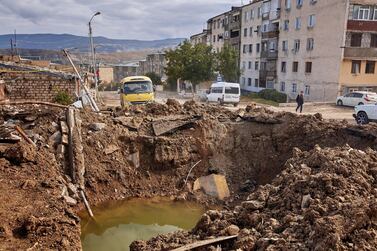Armenian Prime Minister Nikol Pashinyan on Tuesday said only a change in Turkey’s stance on Nagorno-Karabakh could convince Azerbaijan to halt military action over the region.
But in his first interview since a ceasefire in the conflict was agreed to in Moscow on Saturday, he gave no indication that he expected Ankara to shift its position.
The two neighbours have for decades been locked in a dispute over Nagorno-Karabakh, an ethnically Armenian area that broke away from Baku in a 1990s war that cost about 30,000 lives.
Since fighting flared on September 27, Turkey has strongly backed Azerbaijan and said Armenian forces must leave the enclave, which is governed and populated by ethnic Armenians.
French President Emmanuel Macron said Turkey had sent in Syrian mercenaries, as it did in Libya to back the Government of National Accord, drawing widespread condemnation from the international community.
Ankara said on Tuesday that it should play a role in international discussions on the conflict, something Yerevan opposes.
The ceasefire, brokered by Russia, is already badly frayed, with both sides accusing the other of attacks.
At his official residence in Yerevan, Mr Pashinyan accused Turkey of sabotaging the ceasefire and trying to muscle its way into the South Caucasus region to further its expansionist ambitions.
“I’m convinced that for as long as Turkey’s position remains unchanged, Azerbaijan will not stop fighting,” he told Reuters.
Azerbaijan says it is open to the temporary humanitarian ceasefire to exchange prisoners and bodies, but claims Armenian forces have breached it. Armenia denies this.
Iran said an unidentified drone crashed near its border with Azerbaijan earlier on Tuesday.
The drone crashed in a village in Parsabad county, Ardebil province, along Iran's northern border, deputy governor Behrouz Nedayi told Iran’s state news agency Irna.
"The drone's identity and cause of its crash in the area are being investigated," Mr Nedayi said, reporting no damage.
On Tuesday, Armenian and Azerbaijani forces engaged in new fighting despite pleas from world and regional powers to observe the ceasefire.
The International Committee of the Red Cross urged Armenia and Azerbaijan to finalise arrangements for it to handle an exchange of prisoners and bodies from the conflict.
The fighting has killed almost 600, including 73 civilians, according to a tally based on partial tolls from both sides.
"To date we keep discussing intensely with the sides on this topic," Martin Schuepp, ICRC's Eurasia director, said in Geneva.
"But no meaningful agreement has been reached yet that will allow us to actually proceed to such an exchange.
"So discussions are going on with the sides and we hope that the conditions will be met to actually implement such an operation in the future."
Mr Schuepp called for the safety of Red Cross staff to be guaranteed.
The EU and Iran have also called on the parties to observe the ceasefire.
Some estimates show Azeris make up 10 million of the 80 million population of Iran, which is also home to almost 100,000 Armenians.
US Secretary of State Mike Pompeo joined the ceasefire call on Tuesday.
"The United States calls on Azerbaijan and Armenia to implement their commitments to a ceasefire as agreed," Mr Pompeo wrote on Twitter.
"We deplore the loss of human life and remain committed to a peaceful settlement."
But concerns remain over the role of Turkey.
The Syrian Observatory for Human Rights said from Britain that 1,450 Syrian mercenaries had gone to Azerbaijan, including 250 who travelled in the last week.
It said 119 of them had died, with 78 of them repatriated to Syria and other bodies still in Azerbaijan.
Armenia is part of a regional Russia-led security group but Moscow has so far refused to become implicated in the conflict.
Yet analysts say Turkey's involvement will put further strain on relations between President Vladimir Putin and Turkish leader Recep Tayyip Erdogan.
